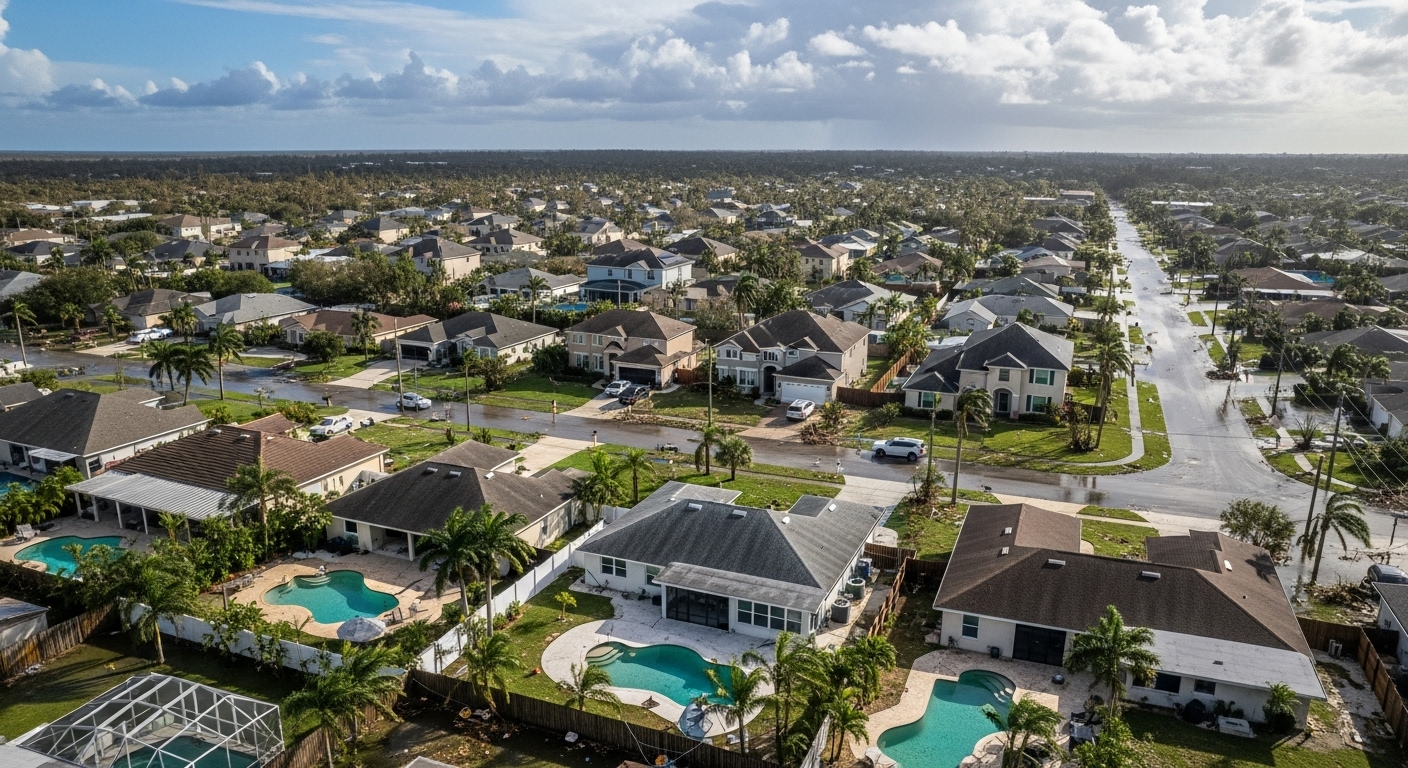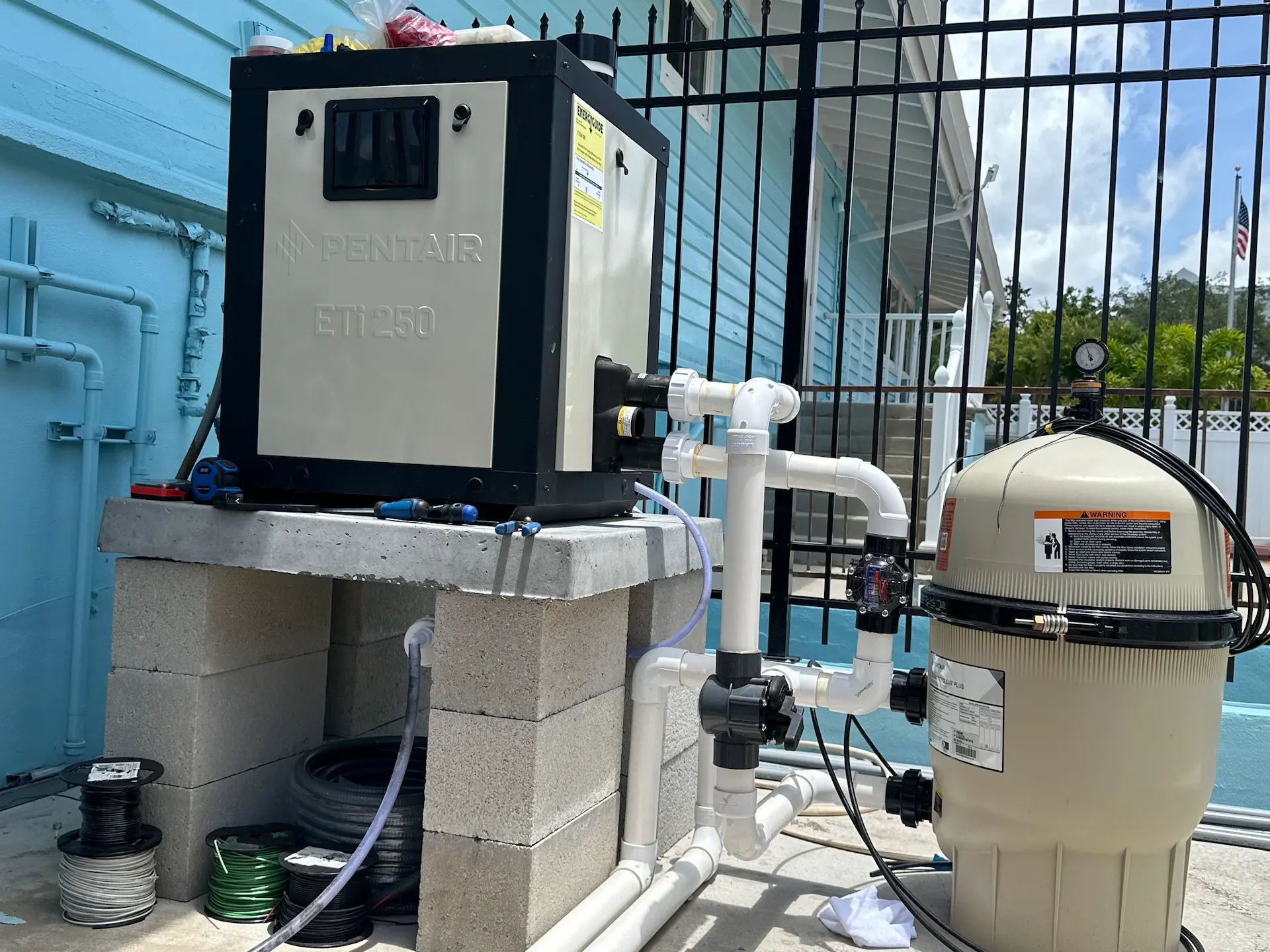Pool Pump Losing Pressure? Get Clear Water Flow and Reliable Pool Performance in Tampa
Pool Pump Low Water Pressure? Restore flow! Diagnose low water pressure.
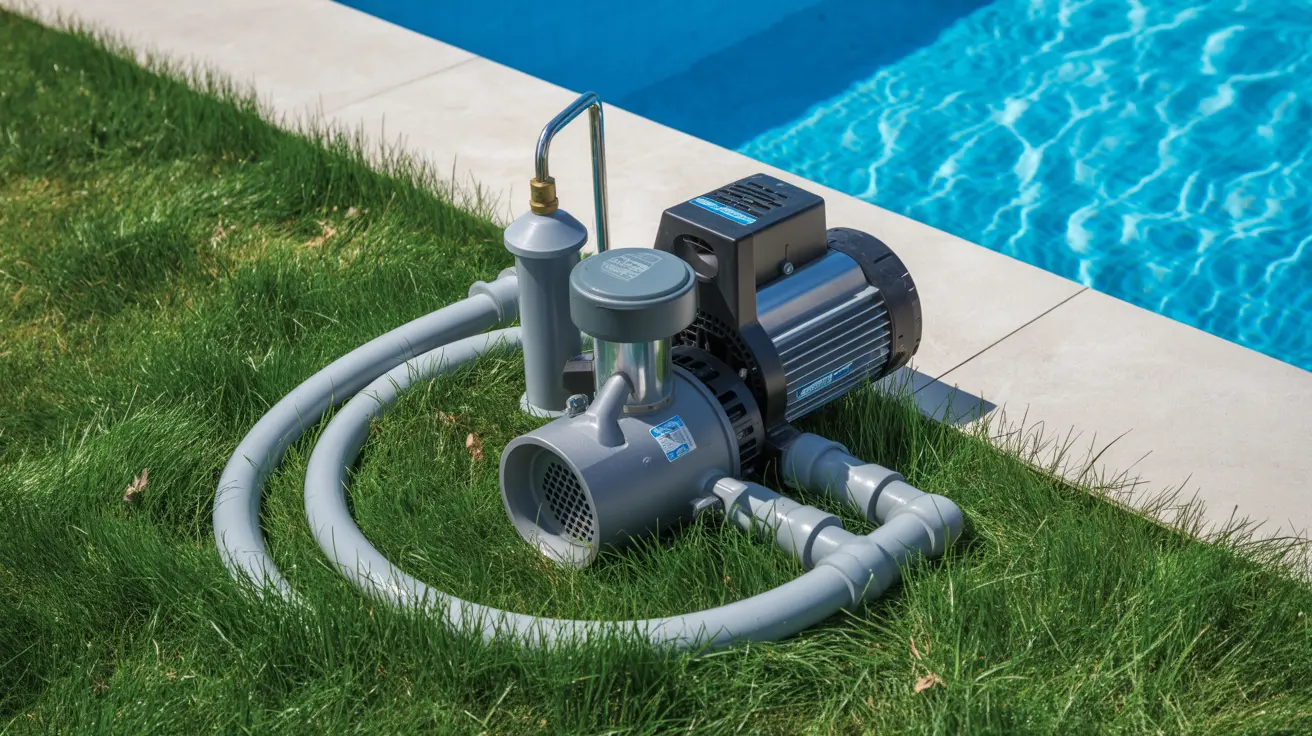

A low water pressure issue or a pool pump losing pressure can turn a sparkling swimming pool into a source of stress. In Tampa’s hot, humid climate, a healthy pool system, powerful pump, and efficient filter are the keys to enjoying every swim. Whether your pool pump pressure drops suddenly or you notice weak jets, acting fast can protect your investment and extend the life of your pool equipment. This article helps Tampa pool owners troubleshoot low pressure, control water flow, and know when to call Your Tropical Oasis—the local leader in pool leak detection and restoration using Leaktronics’ advanced technology.
What Causes a Pool Pump to Lose Pressure?
A pool pump is the heart of your pool system, driving water through the filter and back into the pool. When the pump loses pressure, your pool water circulation suffers, leading to cloudy or dirty water. Causes of low pressure may include:
- Air leaks on the suction side of the pump (before water enters the pump)
- Blockages in the filter or pump basket
- A cracked or warped pump lid or failing o-rings
- Clogged pool cleaners or lines
- A malfunction with the pump’s impeller or seal
If you notice your pump running but your water flow drops, it’s a sign to inspect these parts or call a pool professional for help.
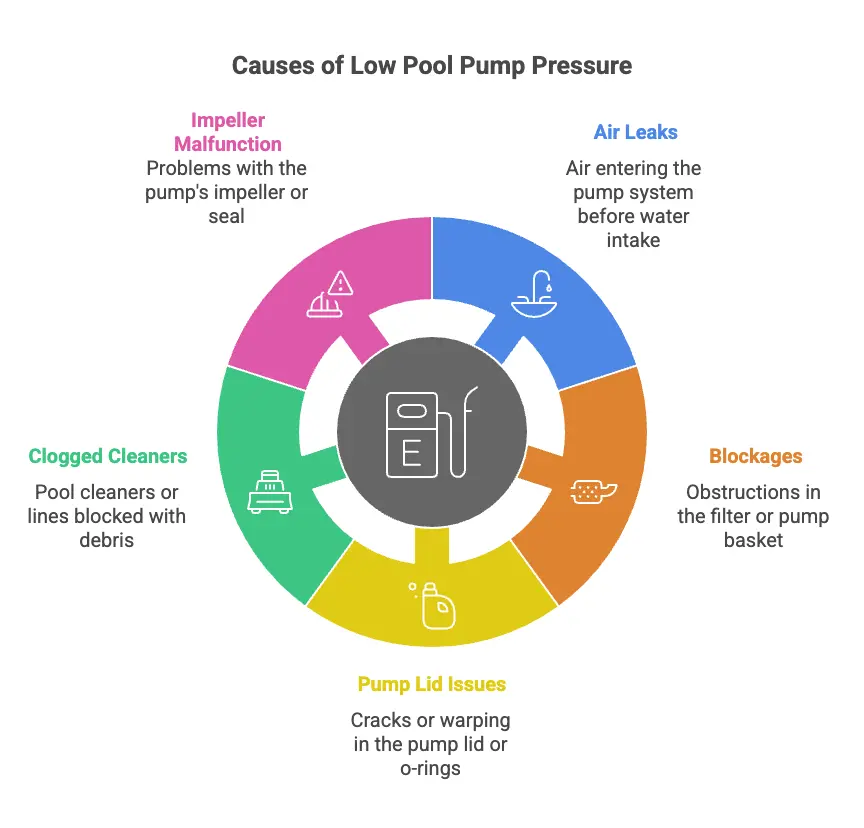
How Does a Pool Filter Impact Water Pressure?
The pool filter is responsible for trapping dirt, debris, and algae from your pool water, ensuring safe and clear swimming. If the filter is dirty, full, or damaged, it will reduce water flow and cause the pressure gauge to read higher than normal. Conversely, a broken filter can cause low pool pressure.
Regularly cleaning or replacing your filter cartridge or backwashing your sand or DE filter is critical to maintain optimal water flow through the filter system.
Why Should You Monitor Your Pressure Gauge?
Your pressure gauge is one of the most important tools on the pool filter system. It tells you when the pressure in the filter tank is abnormal. Normal pool filter pressure will vary by system, but sudden spikes can indicate a dirty filter, while a sharp drop may suggest leaks or air entering the system.
Check your filter pressure gauge weekly, especially after heavy storms, high-use weekends, or periods of rapid water loss in your swimming pool. Any sudden changes should be addressed promptly to keep your pool running efficiently.
Can Low Water Level Affect Your Pool System?
Absolutely. The water level in your pool must be maintained at the proper height—usually halfway up the skimmer opening. A low water level allows air to get pulled into the skimmer and pump, leading to low water pressure, the pump losing prime, and even damaging the pump over time.
If your water flow drops after a stretch of hot weather or lots of swimming, refill the pool until the correct level is restored before using the pump.
What Are the Signs of Low Water Pressure?
Watch out for these indicators of low water pressure in your pool:
- Weak water flow out of your return jets
- Visible air bubbles in the pump basket or returning to the pool
- A pressure gauge reading lower than normal
- The pool pump not staying fully primed
- Poor filtration and rising cloudiness in pool water
If you notice one or more, your pool system may need troubleshooting to identify the pressure drop source.
How Do Clogs and Dirty Filters Reduce Flow?
A clogged filter, pump basket, or skimmer basket means less water gets pulled through the pump and filtration system, causing low pool pressure and lower overall water flow. This can also make the pump run hotter, wearing out moving parts and leading to more frequent pool repairs.
Always clean your baskets and rinse your filter regularly. For cartridge filters, periodically soak the filter overnight to remove deep-set debris, ensuring full flow through the system.
Why Is Pool Maintenance Crucial for Pressure?
Ongoing pool maintenance does more than keep your water blue—it prevents costly breakdowns. Cleaning baskets, checking the pump and skimmer baskets for leaves or debris, and having a routine backwash or cleaning schedule for your pool filter will keep your pool running efficiently.
Don’t forget to check for leaks around fittings, pipes, and valves, as undetected leaks can reduce water to the pump, creating issues with low pressure and water loss.
What’s the Role of the Cartridge Filter in Pressure Drops?
A cartridge filter is a common type of pool filter in Tampa. When clogged, it restricts water flow, showing a high reading on the pressure gauge and eventually causing low pool pressure if the pump can’t push against built-up debris. Periodically soaking the filter overnight in a cleaning solution can restore optimal filtration and flow.
If your filter can’t be cleaned any further or appears damaged, replacing it is often the best move to recover pressure.
How Do Pool Professionals Fix Low Pump Pressure?
Experienced pool professionals have strategies to diagnose and repair pool pump pressure problems, including:
- Checking all suction and return lines for blockages
- Inspecting and re-sealing the pump lid and o-rings
- Examining the pump’s impeller for jams
- Testing for hidden leaks using Leaktronics’ industry-leading leak detection technology
These steps ensure every part of your pool system maintains the proper water flow, keeps your pool water sparkling, and protects your family’s investment.
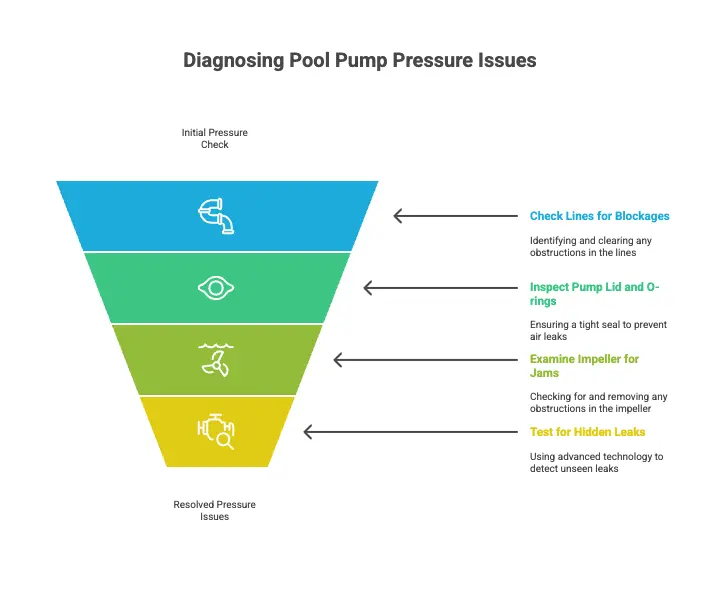
How Can Leak Detection Prevent Pool Repairs?
Hidden leaks can silently reduce water flow and pressure inside your pool system, leading to unbalanced water, wasted chemicals, and worn-out equipment. At Your Tropical Oasis, we use advanced leak detection services to catch problems before they spiral.
Finding and fixing leaks early avoids unexpected repairs, reduces the risk of pool repair emergencies, and keeps your water bill in check—all while ensuring strong water pressure in your pool system.
Key Things to Remember
- Pool pump pressure issues start with symptoms like weak jets, low filter readings, and air in your pump basket.
- Clogs, dirty filters, and low water levels are the most common causes of low water pressure or pump losing pressure.
- Maintain your pool filter and baskets weekly, and check for leaks frequently.
- Address pressure gauge changes promptly for best pool system health.
- Always refill the pool to the correct water level before running the pump.
- If you suspect hidden leaks or ongoing pressure drops, get a professional leak detection done.
- Choosing Your Tropical Oasis ensures advanced leak detection and expert repairs for reliable pool performance in Tampa.
Keep your pool system running smoothly with regular care, smart troubleshooting, and professional pool pump repairs. Your fun in the sun depends on it!
Read our latest blog & articles
.webp)
